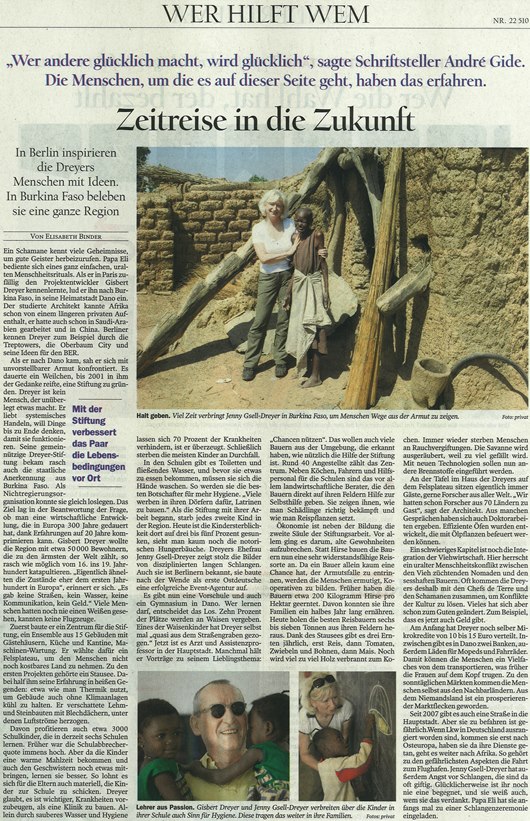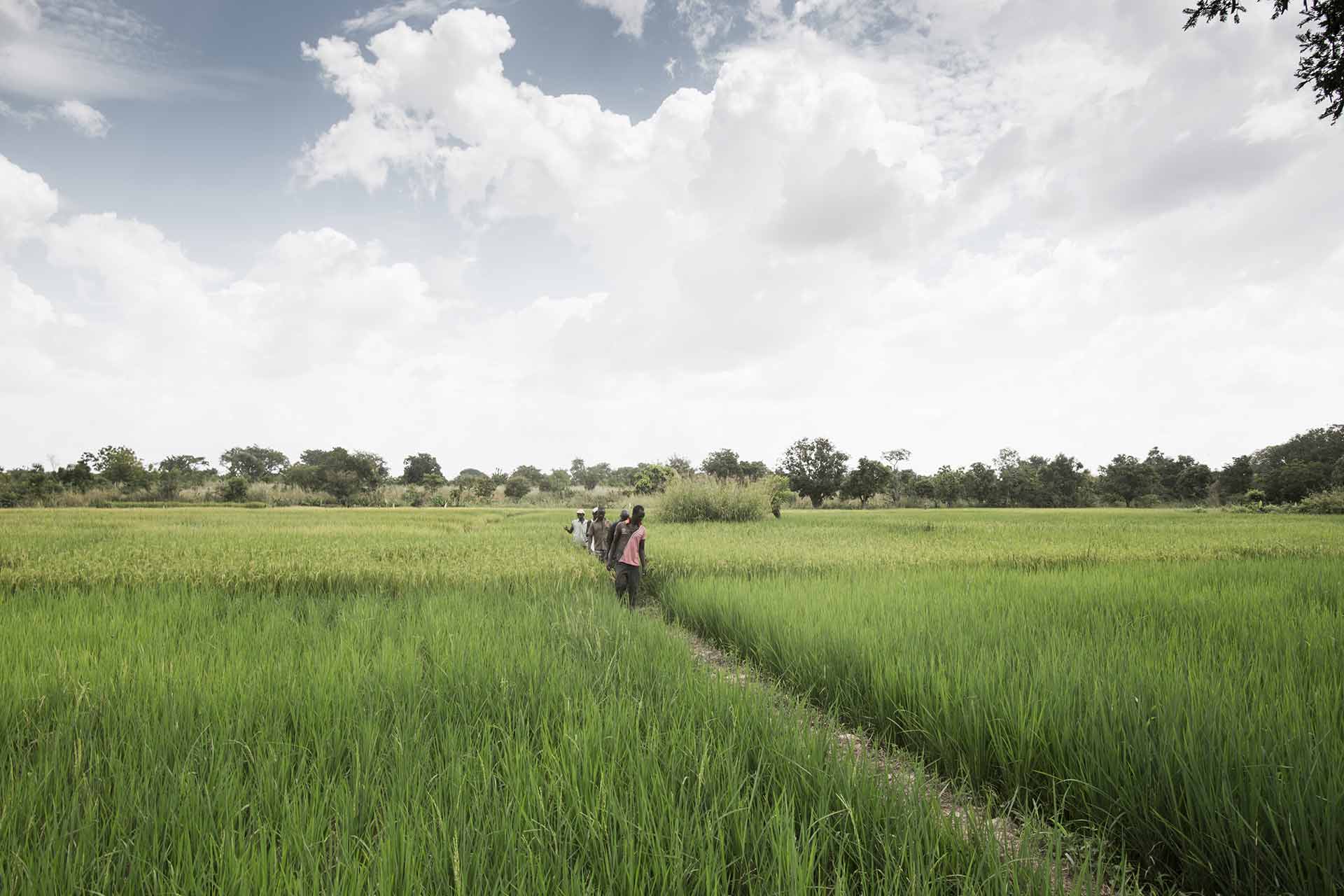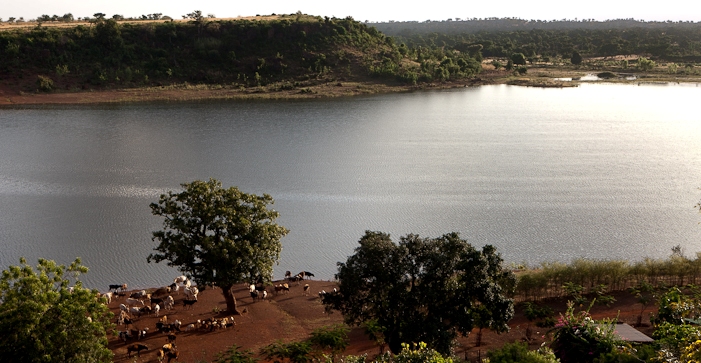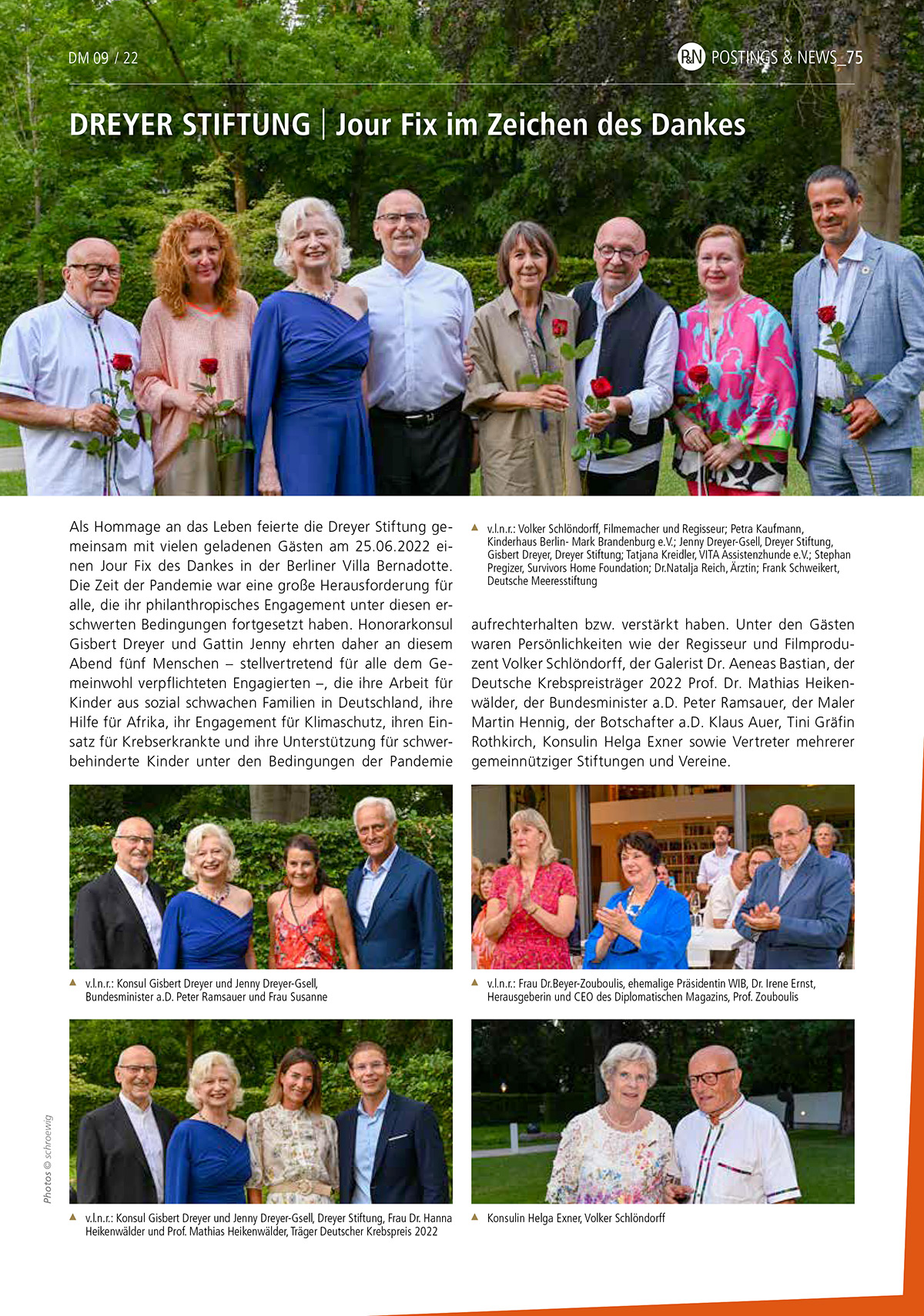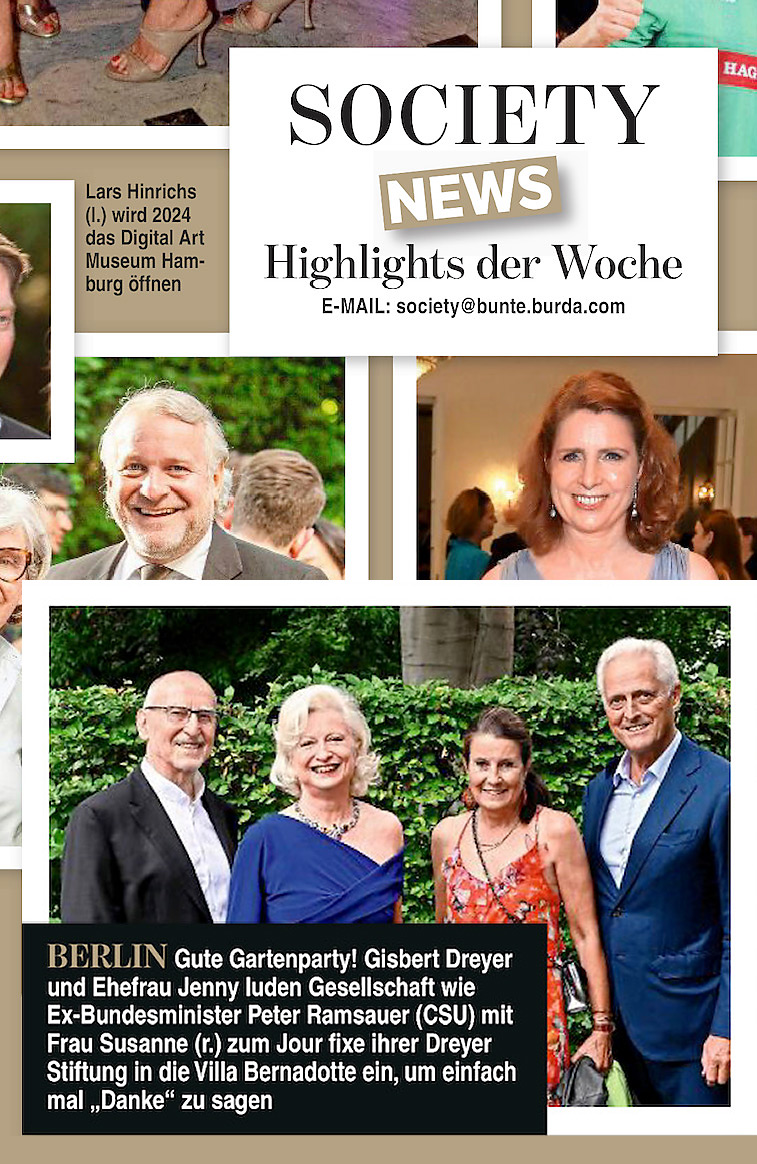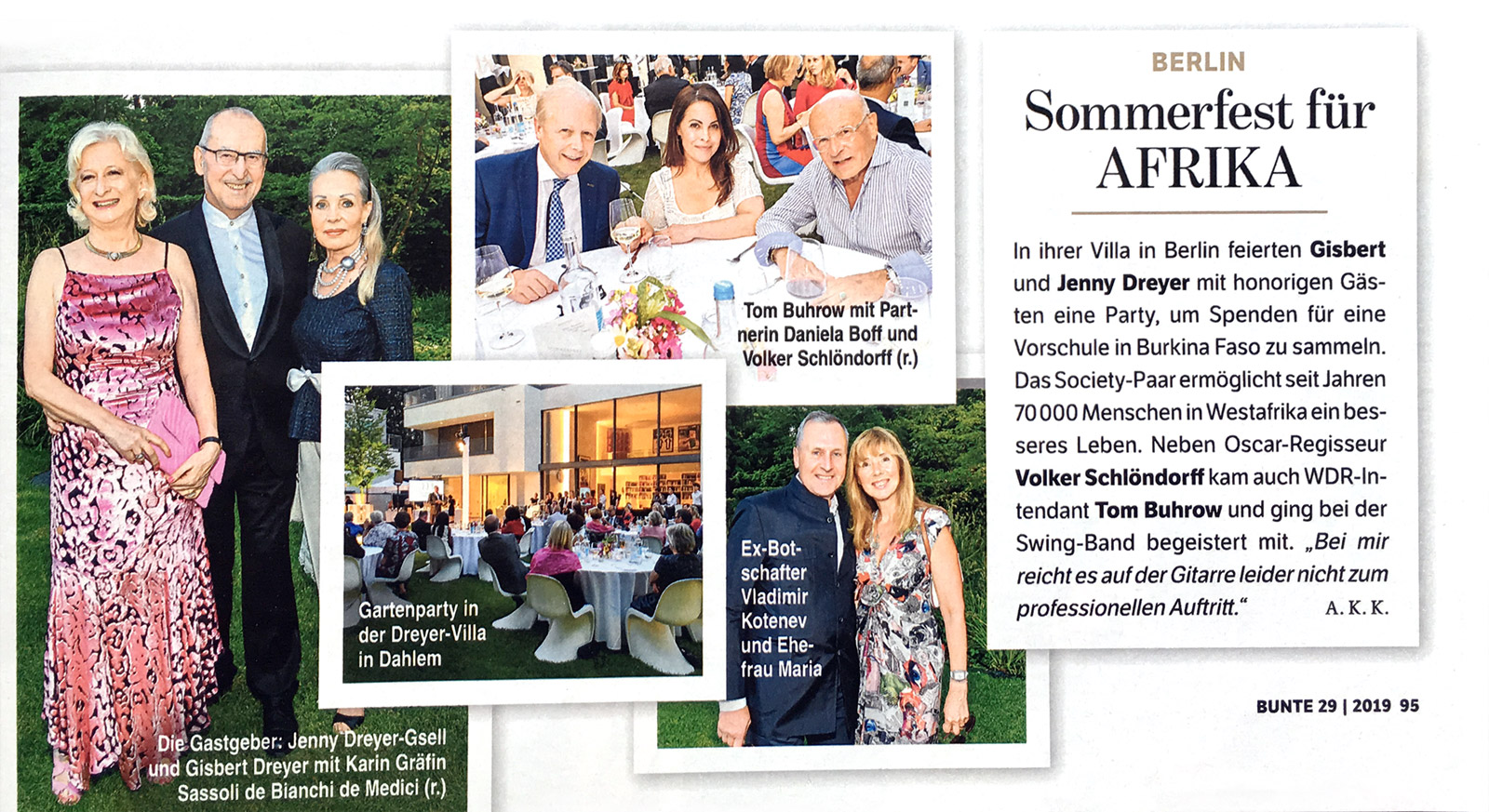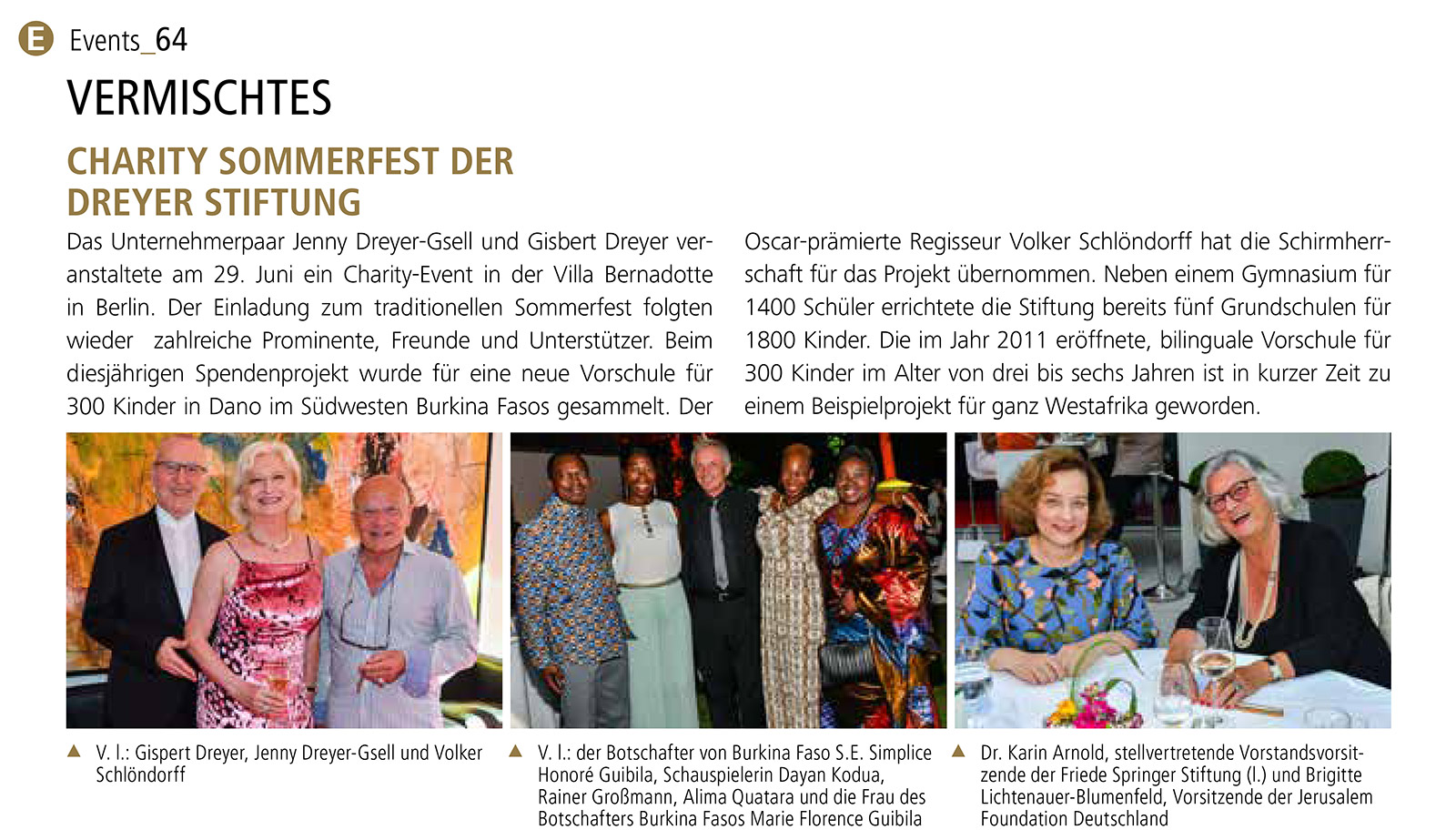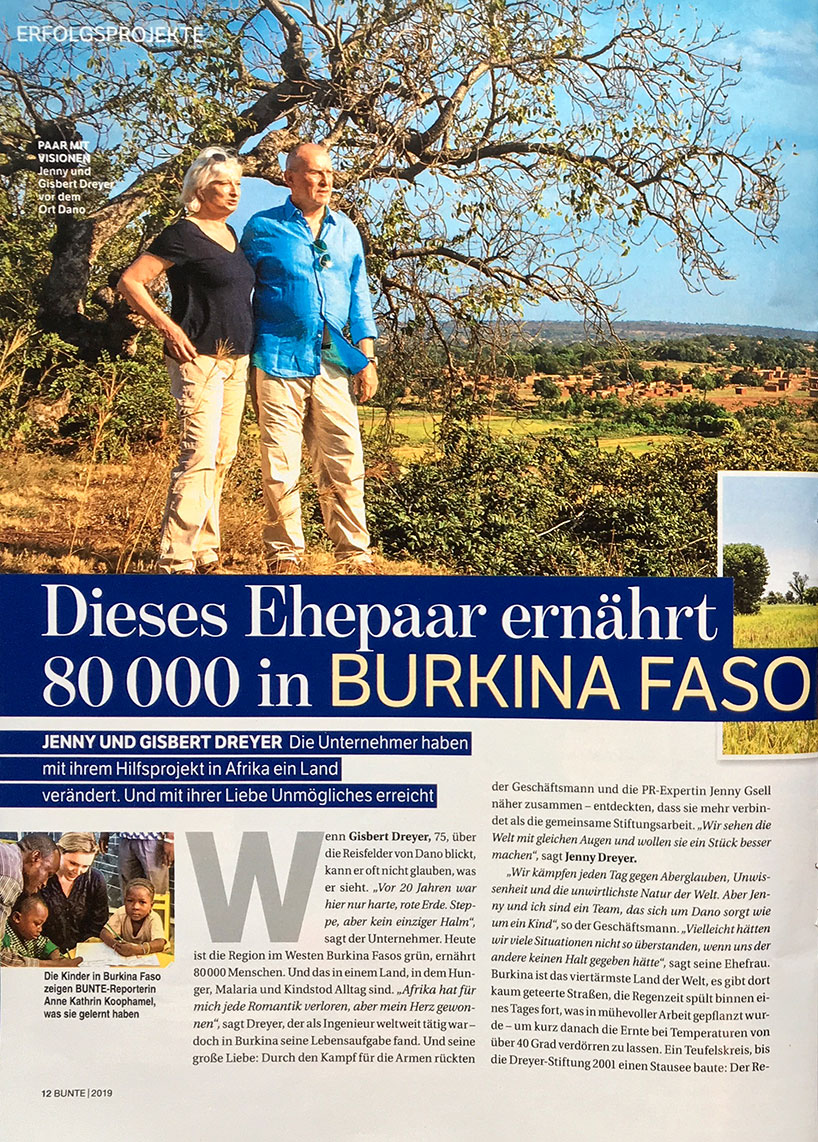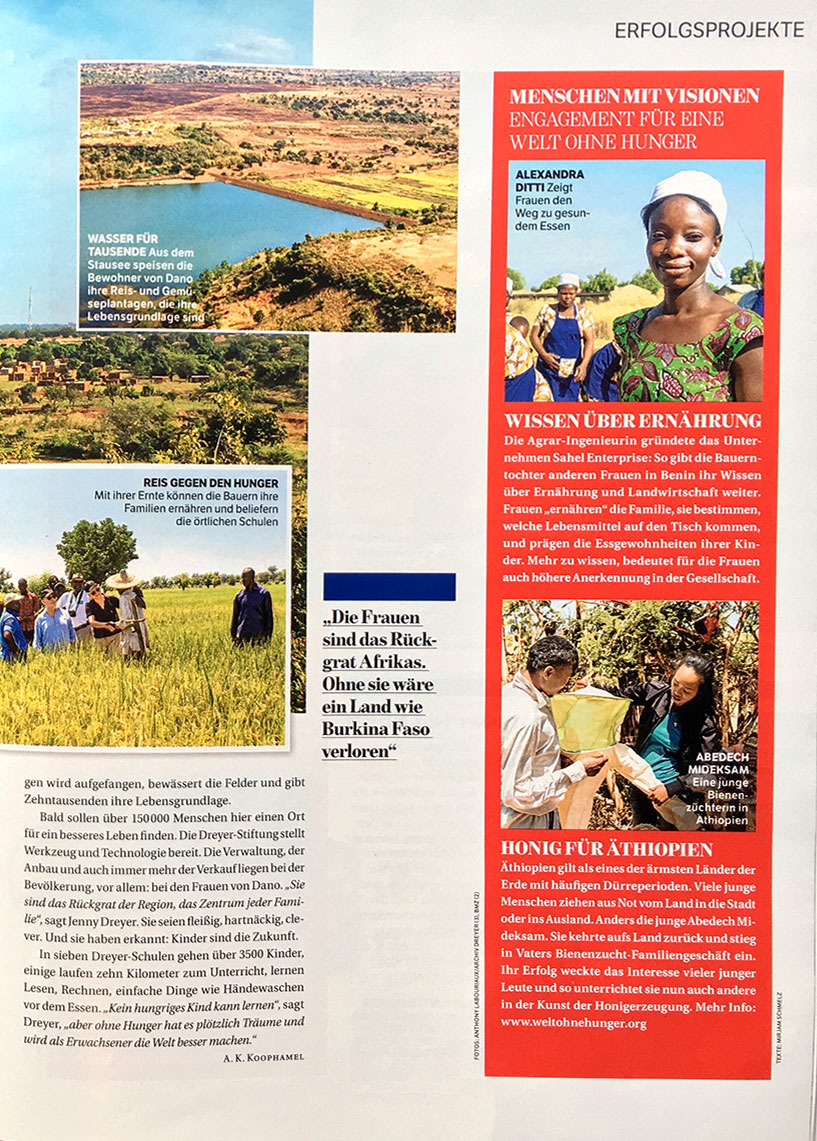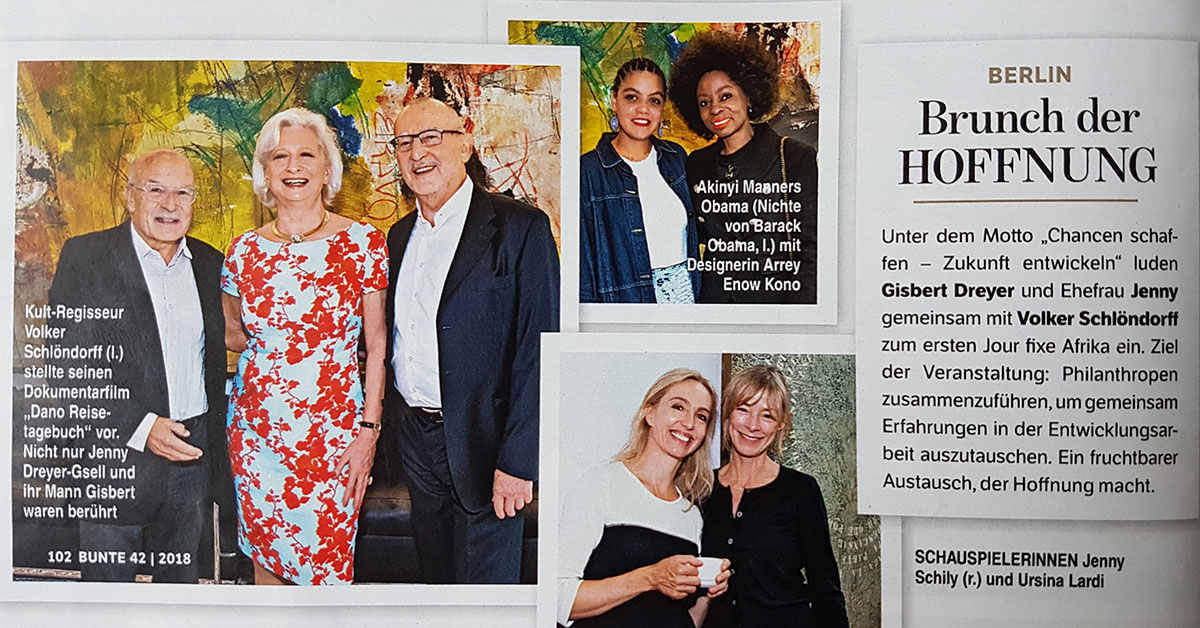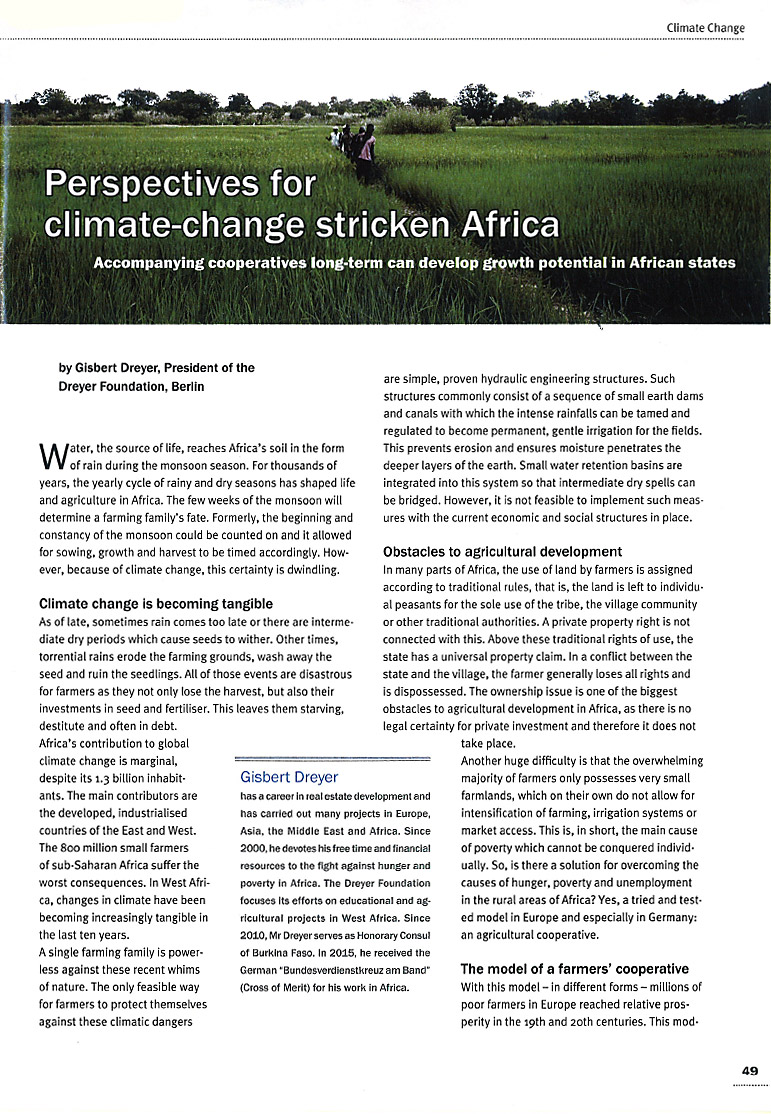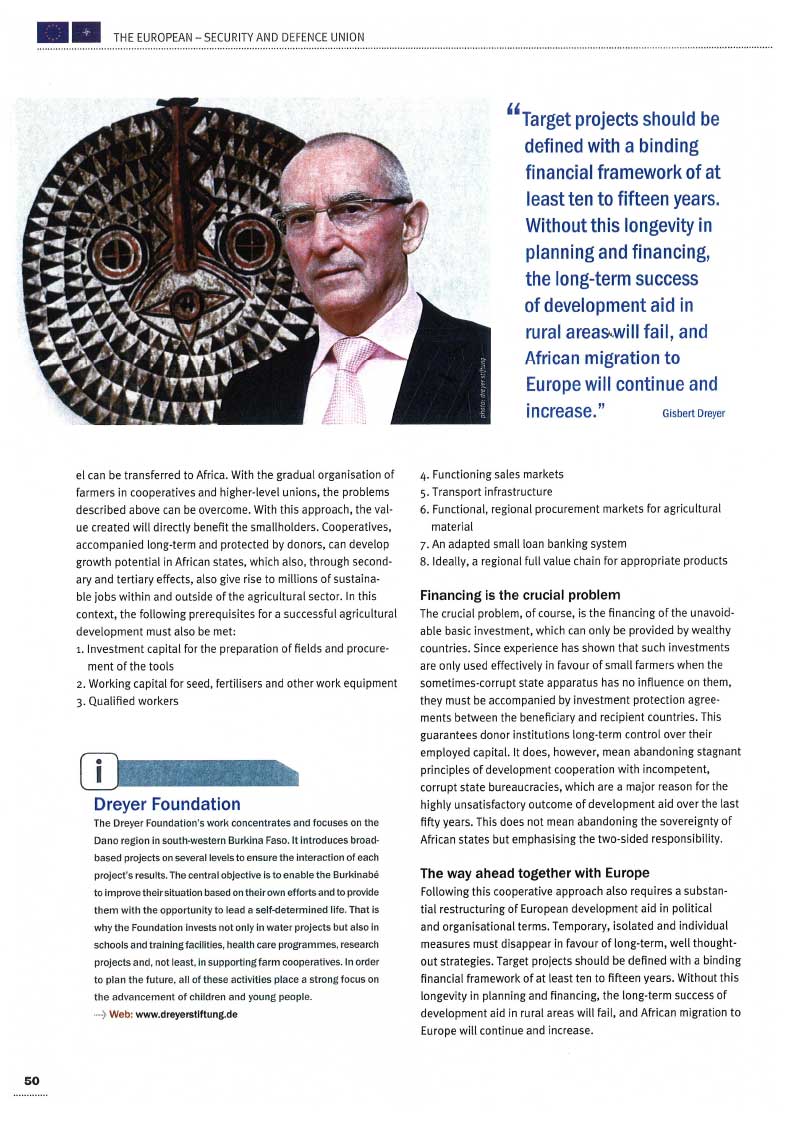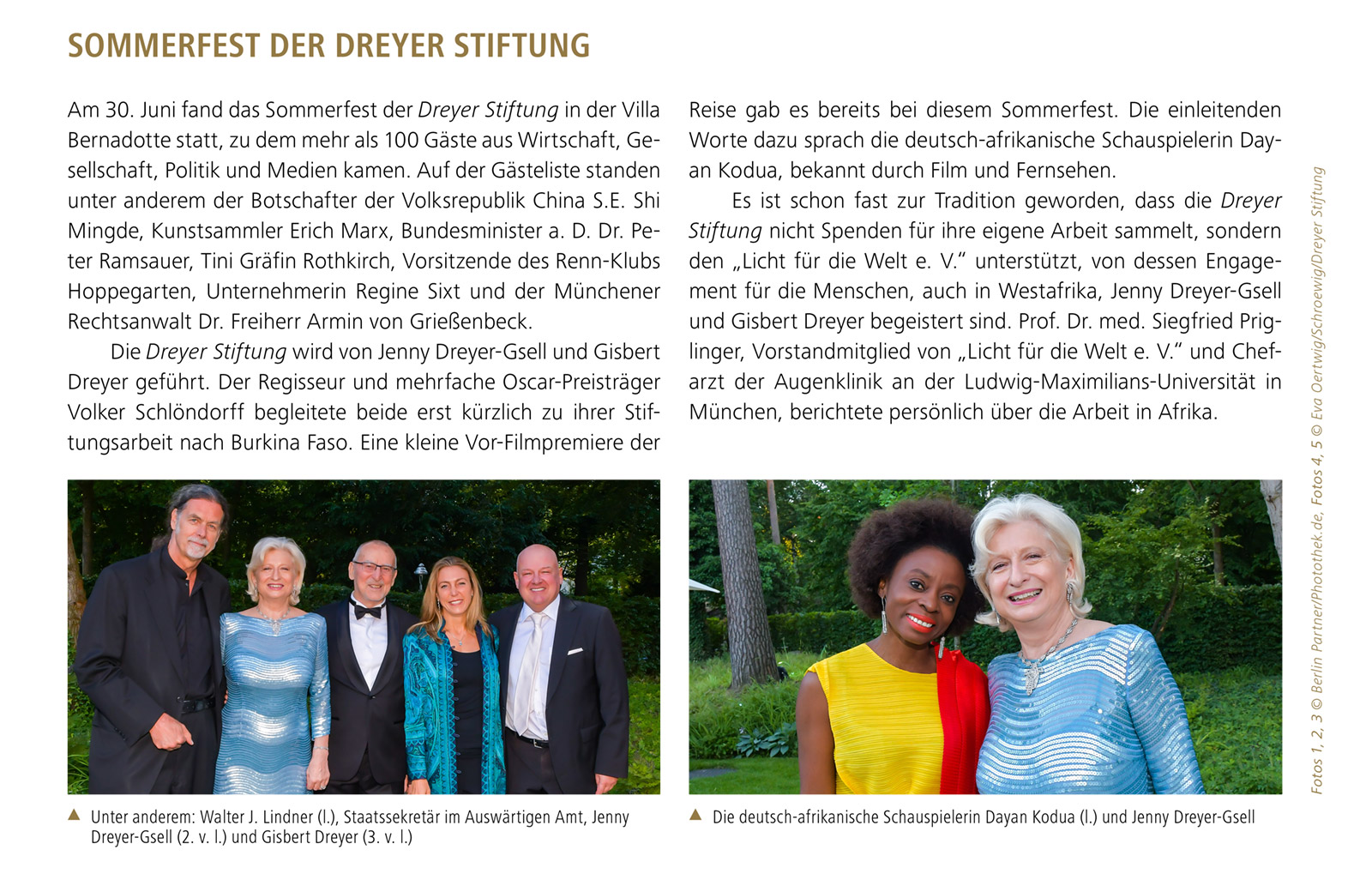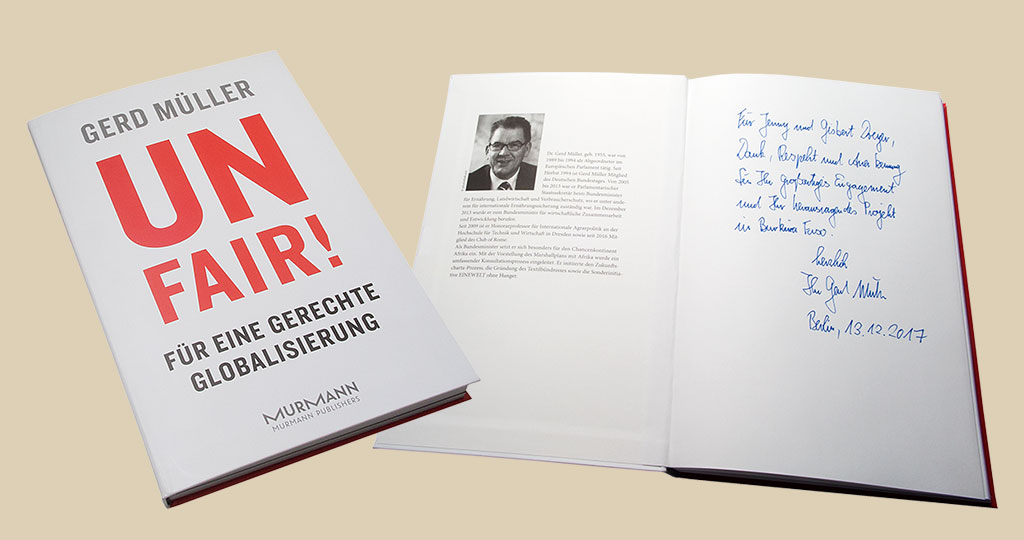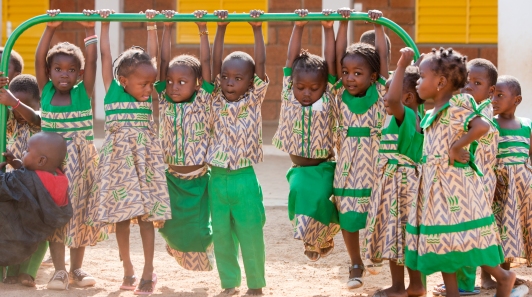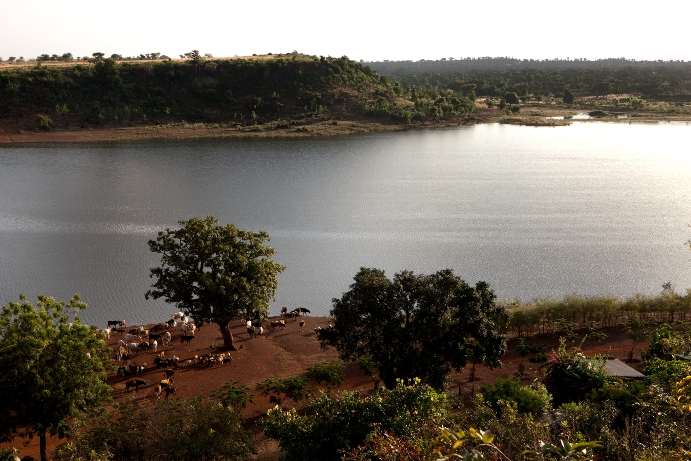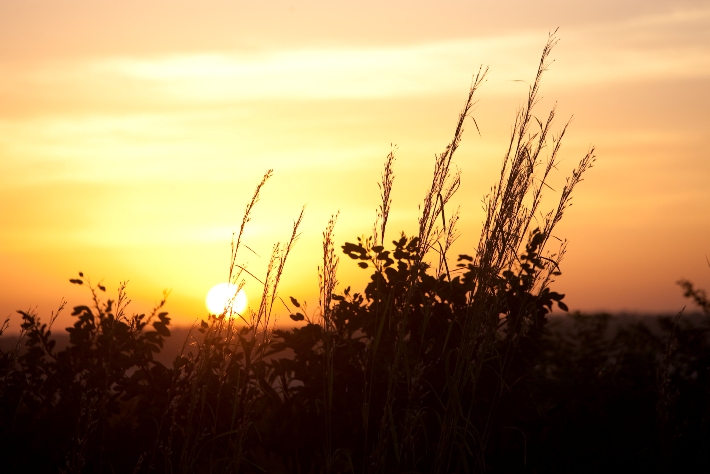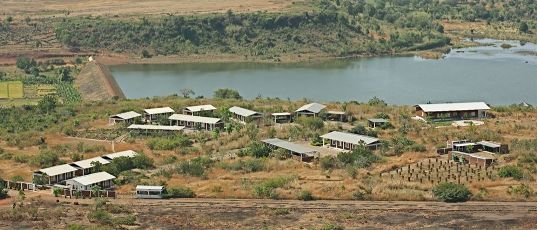
Press
Diplomatisches Magazin
09.2022
BUNTE
30.7.2022
BUNTE
11.7.2019
Focus Online
1.7.2019
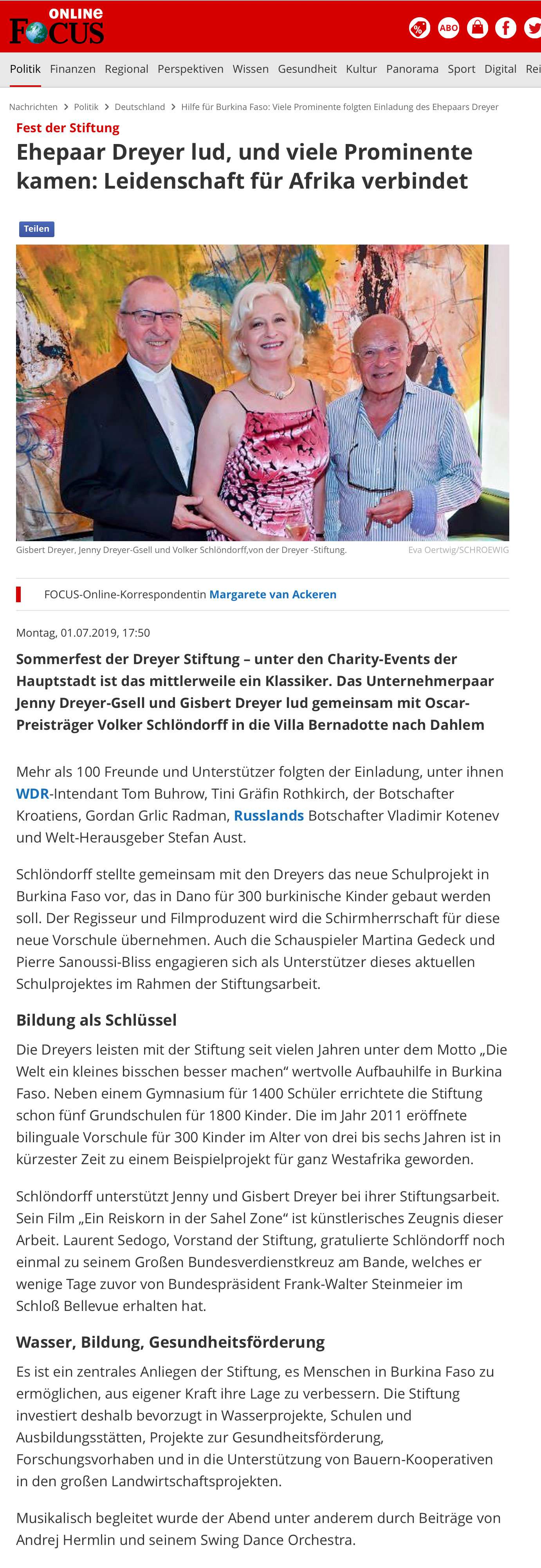
Diplomatisches Magazin
7.2019
Tagesspiegel
6.7.2019
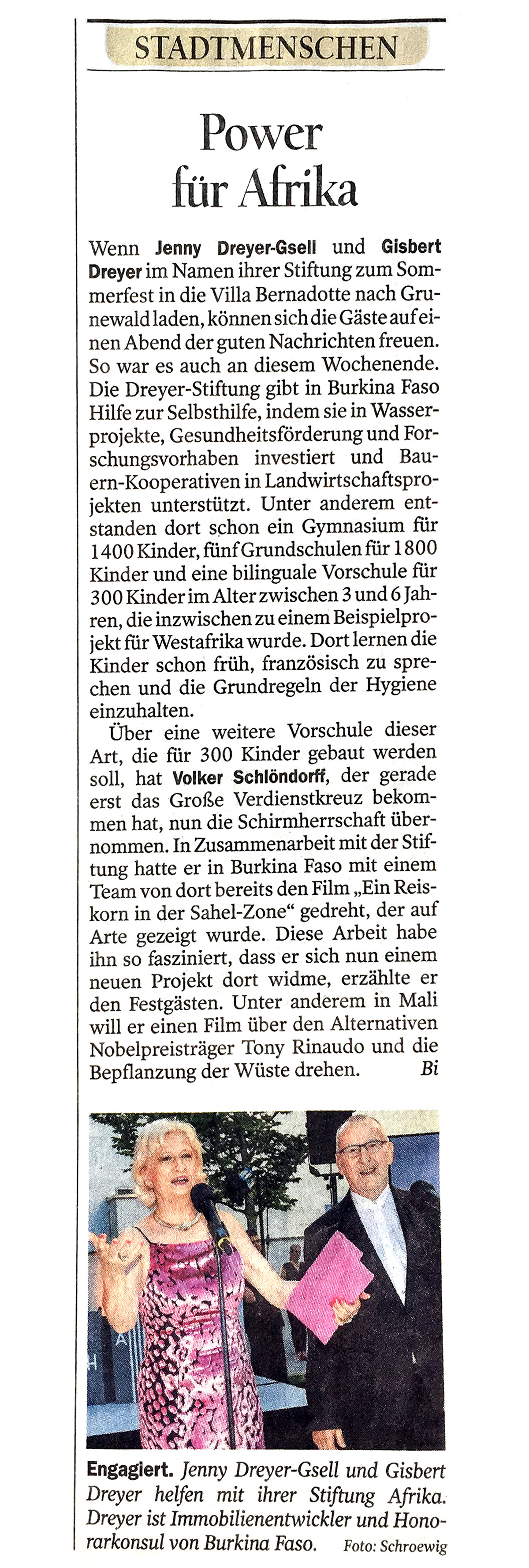
Die BUNTE, No. 4, 17.1.2019
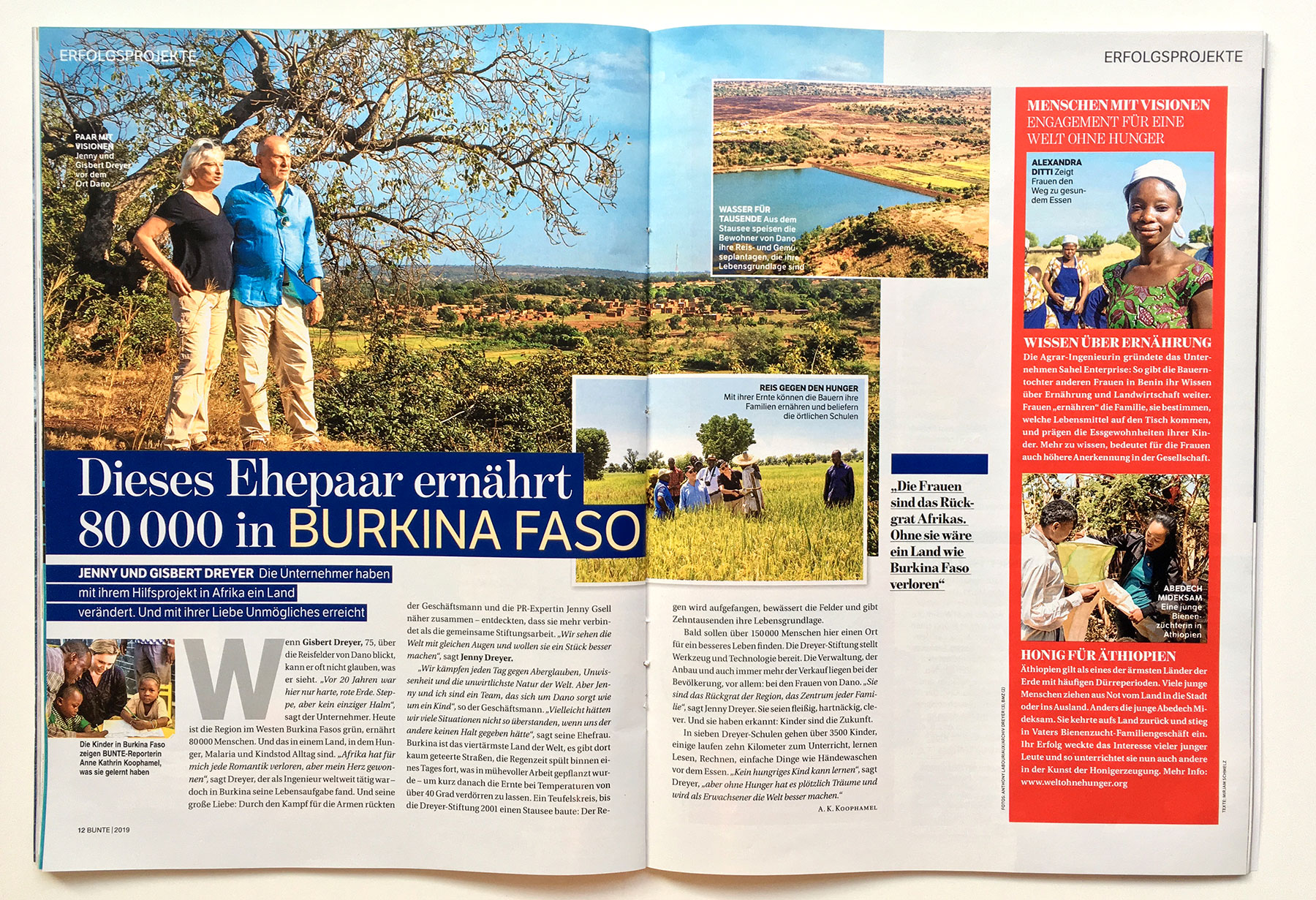
Die BUNTE, No. 42, 11.10.2018
The European
Security and Defence Union (Edition 02/2018)
Independent Review on European Security and Defence
A Product of ProPress Publishing Group
Diplomatisches Magazin, Issue 08/2018
Reis für ein besseres Leben
published in Tagesspiegel, 05.07.218
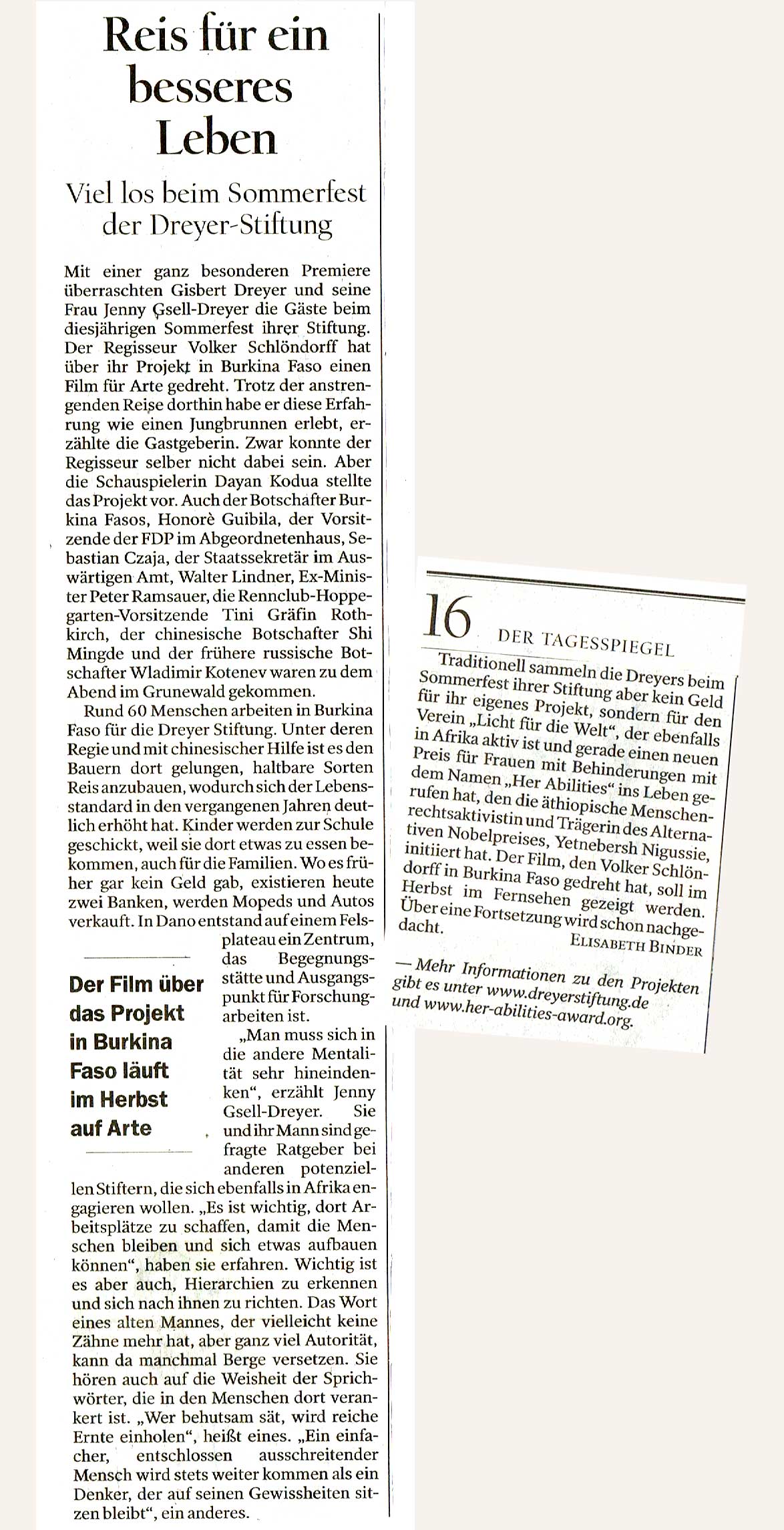
The Dreyer Foundation in the new book by Gerd Müller, Federal Minister for Economic Cooperation and Development
In his new book "Unfair", Gerd Müller describes the challenges of our time in relation to globalisation and fair, ecological trade. Following his visit to the Dreyer Foundation in Burkina Faso, he described the project in his book as groundbreaking in terms of solving the problems of poverty and selfdetermination.
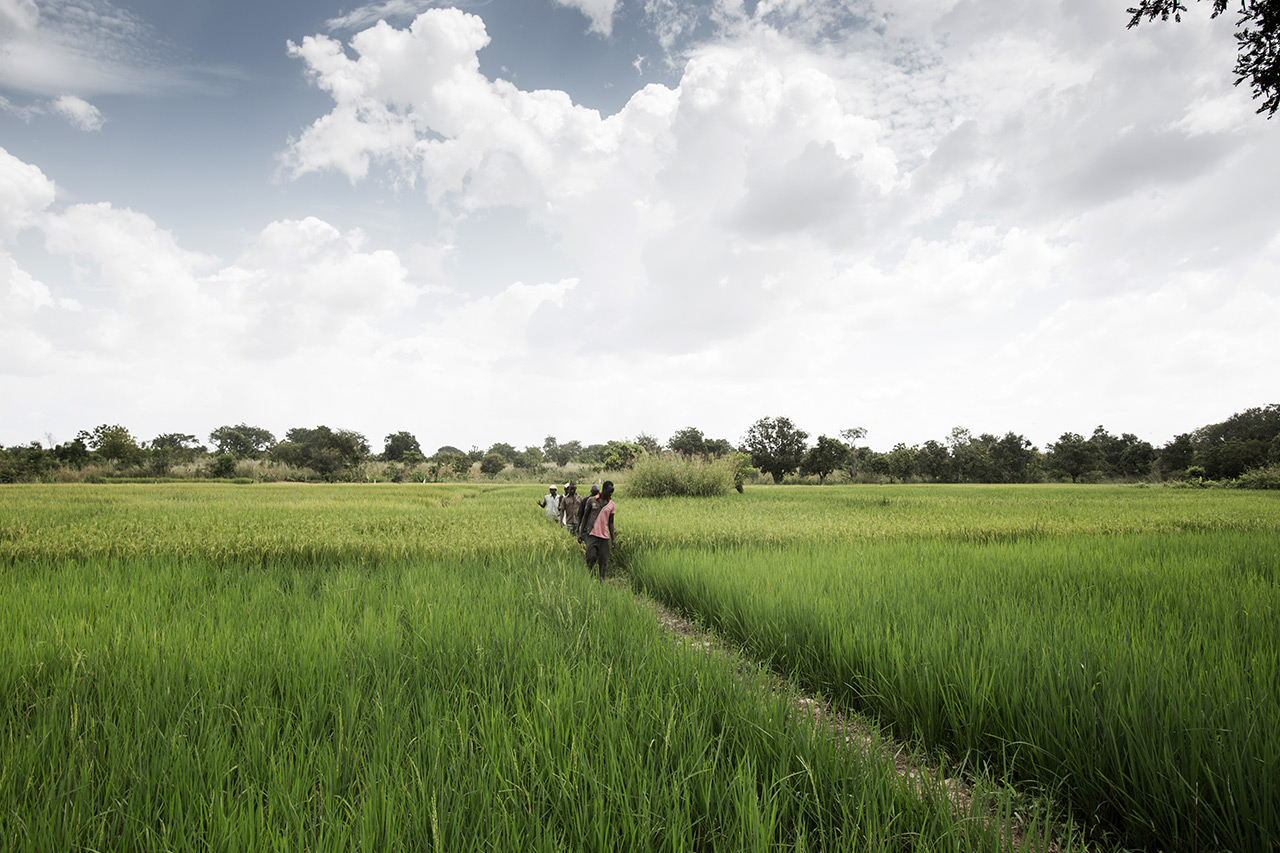
On page 84, Müller writes in his book:
“… The fate of rural areas has been ignored for far too long. Here the granaries of the world can be found. Small farmers use about half of the world's arable land - but in most cases not very effectively. An example of this is Burkina Faso in West Africa, where 80 percent of the population live from agriculture, mostly from subsistence farming. Currently, half of the rice required by Burkina Faso is imported, notwithstanding that the country could feed itself.
This is evidenced by the Dreyer Foundation located in Munich. It is magnificent what Jenny and Gisbert Dreyer have achieved over the past decades in Dano, in the South West of Burkina Faso. On the way to Dano we drove 50 kilometers through heat and dust, when suddenly a paradise appeared in the middle of the desert.
The people here owe a lot to a dam which they constructed with their own hands out of clay, not concrete. When I was there in February 2017, four months after the last rainfall, the retention basin still held enough water. From there, it flows in a controlled manner into the cultivated areas, which can be harvested three times per year. Each of the 3000 farming families here owns about one third of an hectare of land. They grow rice, as well as vegetables and fruits. "Is it even possible to live from so little land?" I ask. Gisbert Dreyer answers: "These are the richest farmers in the country." With the help of the foundation, they have developed a continuous value chain in Dano: from the production and processing in a small factory to the marketing stage. The cooperative follows a model that was characterised by Friedrich Wilhelm Raiffeisen in Germany. Through the cooperative of the farmers in production, joint purchase of fertiliser by way of fixed supply contracts and joint processing and sales, the farmers are able to generate a stable income. Dreyer reports that 20 years ago there was no light or electricity in Dano. Not even an iron studded hoe. Today there are schools for several thousands of children. But the offering is far from sufficient. The school places have to be raffled. The children are enthusiastic, eager to learn and bring the knowledge home with them to their clay huts.
The approach of the Dreyer family has shown that problems can be solved through knowledge and that the desert can be turned green. The future of humanity is also decided in rural areas, among the small farmers, the landless and the shepherds. Nowadays, German development policy has made rural areas one of its top priorities. All activities relating to this topic have been bundled under the special initiative »ONEWORLD without hunger«, and have been provided with additional funds. Every year we spend 1.5 billion euros on rural development and food security. As part of this initiative we focus on partner countries in Asia and Africa.
Fifty years ago Africa still exported food produce, although back then the continent had significantly less inhabitants. Today, Africa pays 35 billion euros annually for food imports. It must be goal that Africa can feed itself again!...and this even with a population that is rapidly growing. …”
ONE WORLD without hunger
A contribution by Gisbert Dreyer on the topic “from subsistence agriculture to a sustainable and marketable agriculture” was published on the website of the organisations’ special initiative ONE WORLD without Hunger. The article is available to read at the following link: weltohnehunger.org
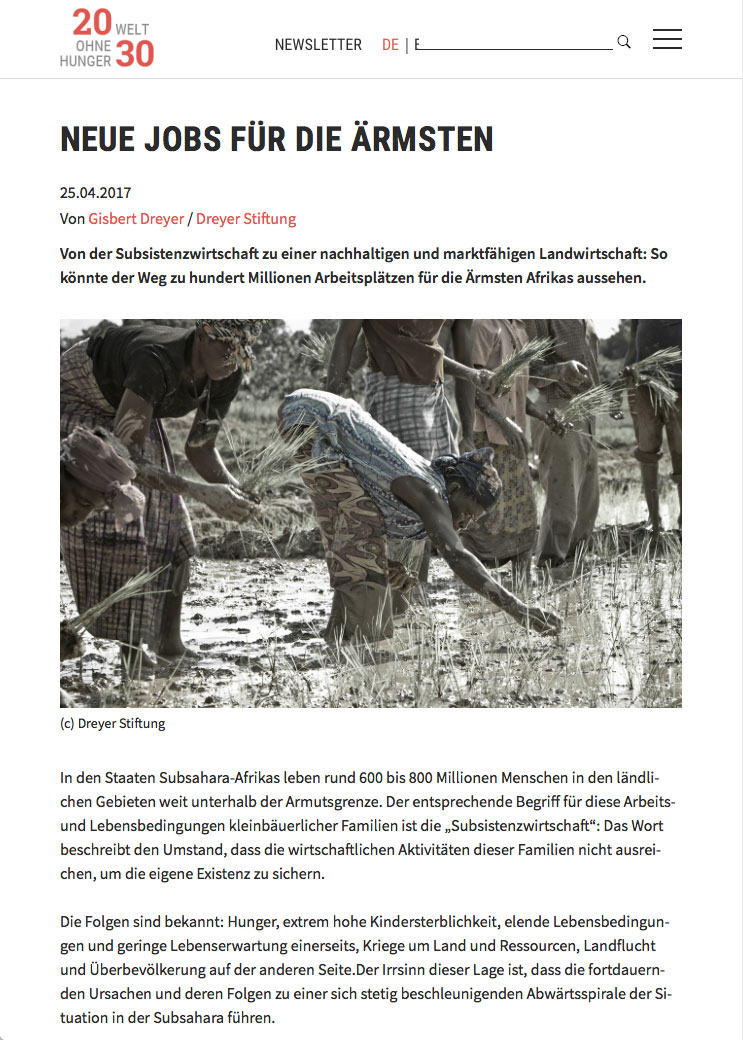
Bildband der Dreyer Stiftung
Unter dem Titel "Die Zukunft der Welt gemeinsam gestalten" erschien 2016 ein Bildband der Dreyer Stiftung. Dieser gibt einen kleinen Eindruck der Menschen in Dano, des Landes und der Stiftungsarbeit in Burkina Faso wieder.
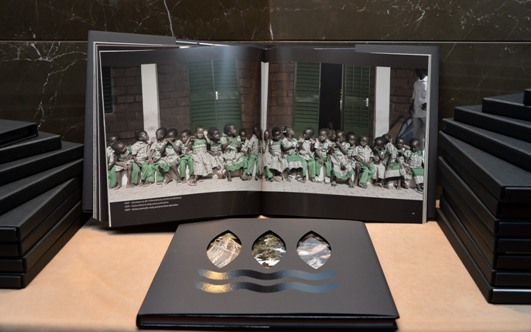
Zeitreise in die Zukunft
published in Tagesspiegel, September 3, 2015
